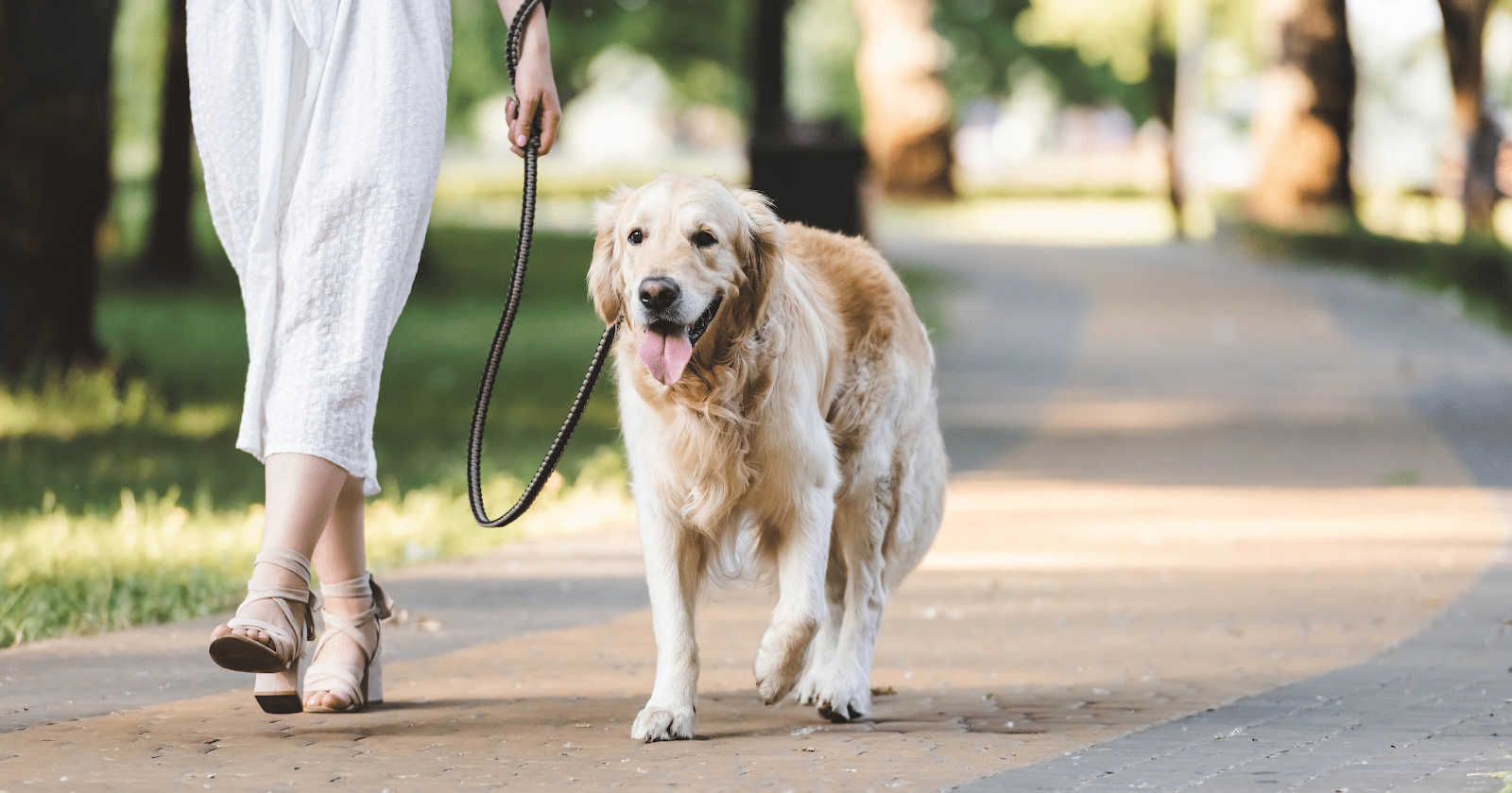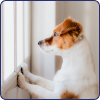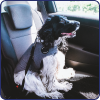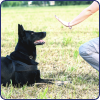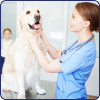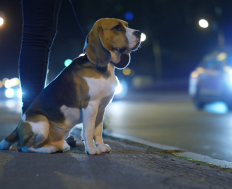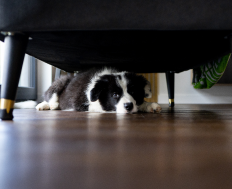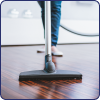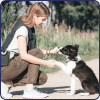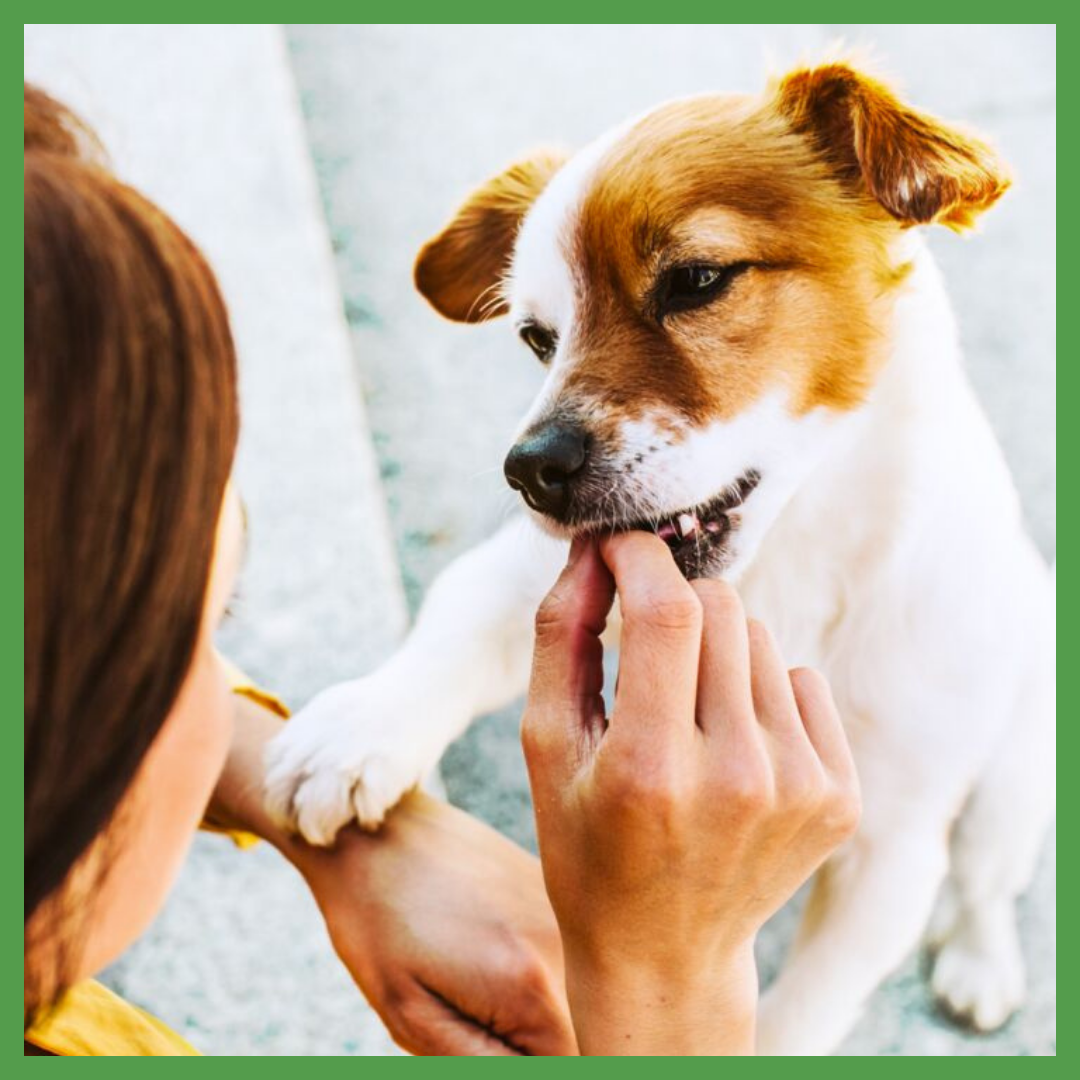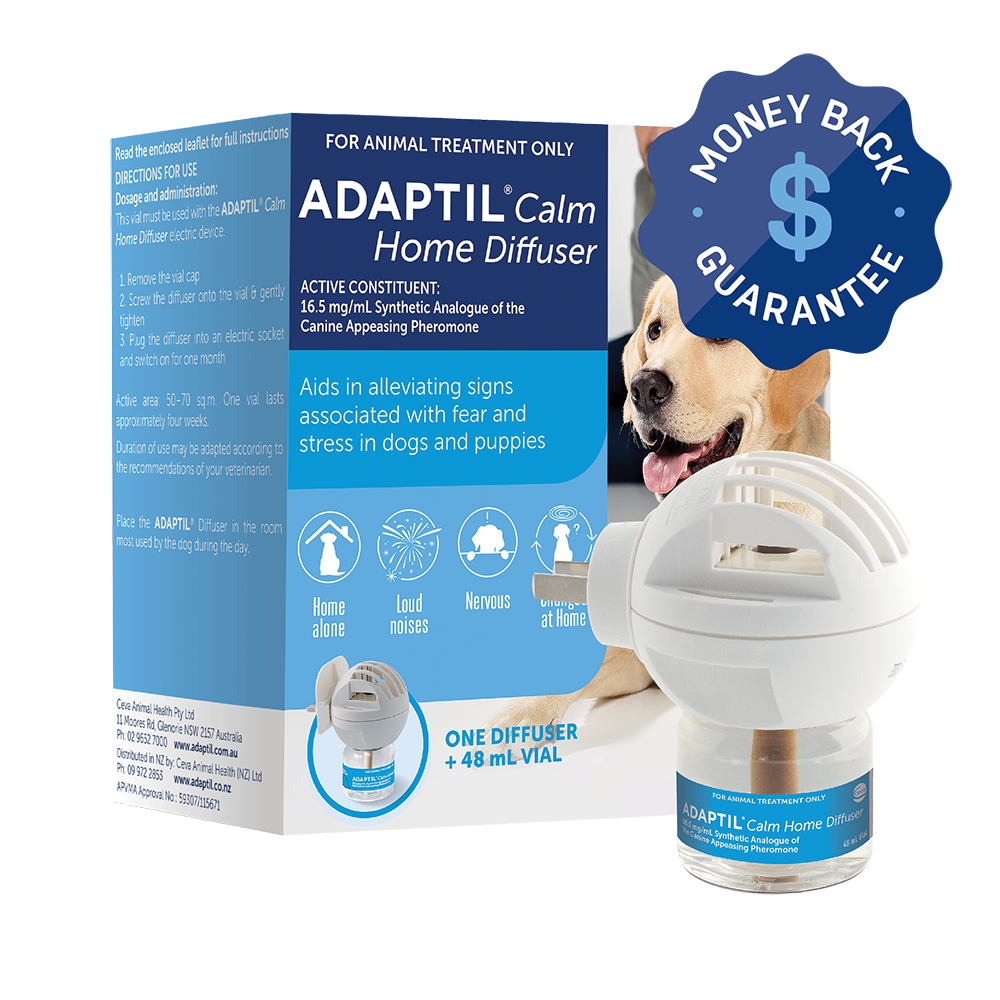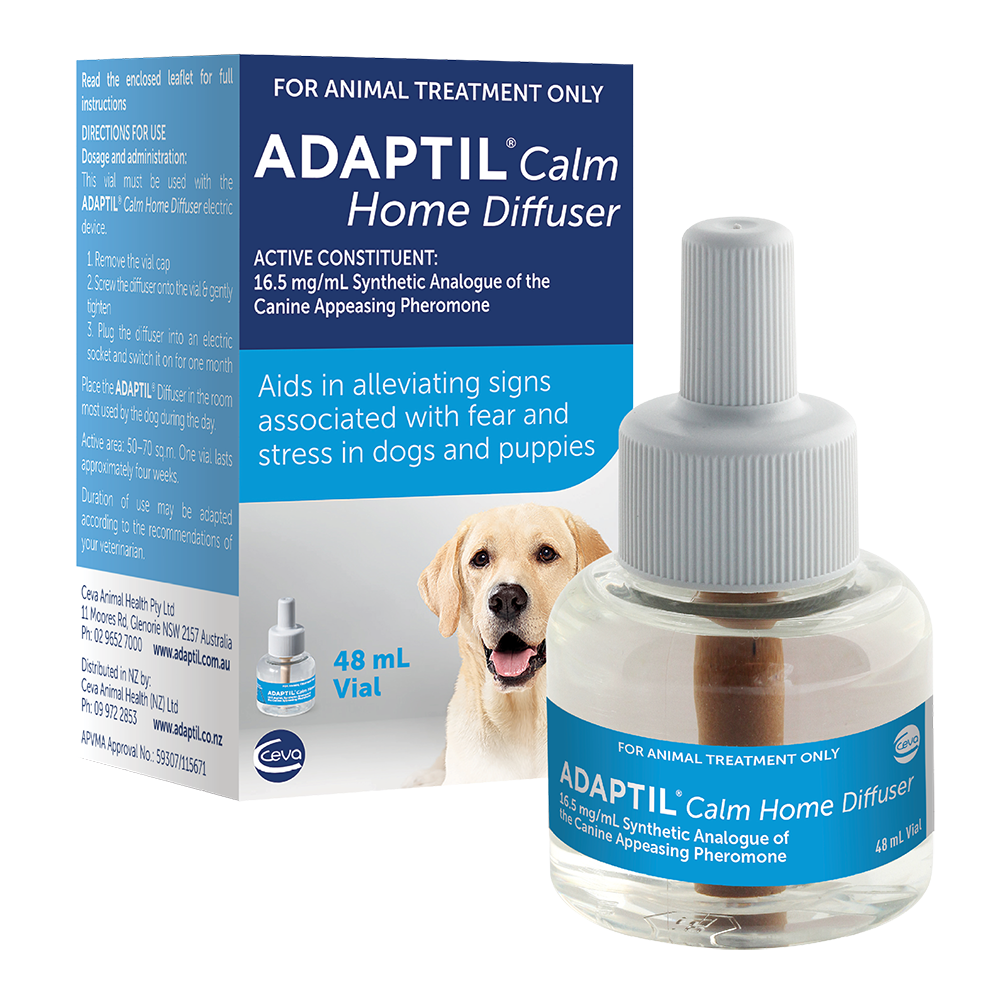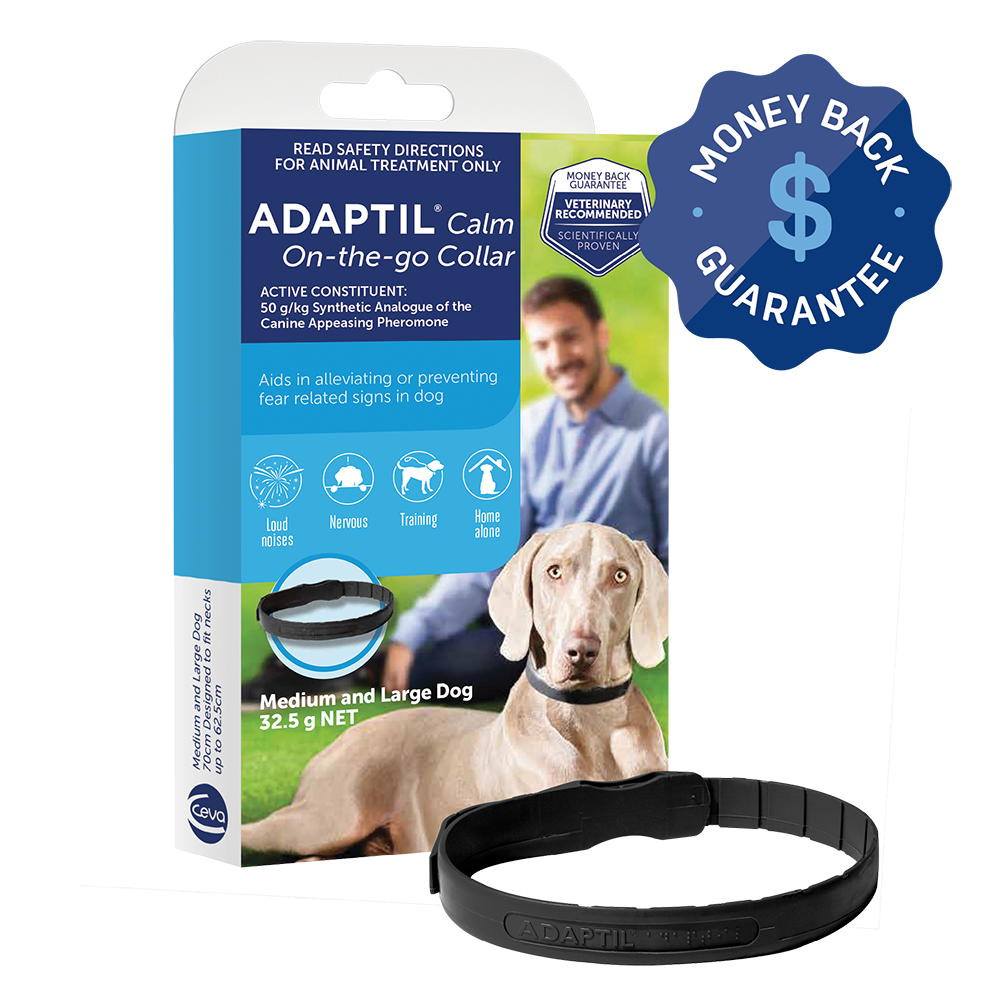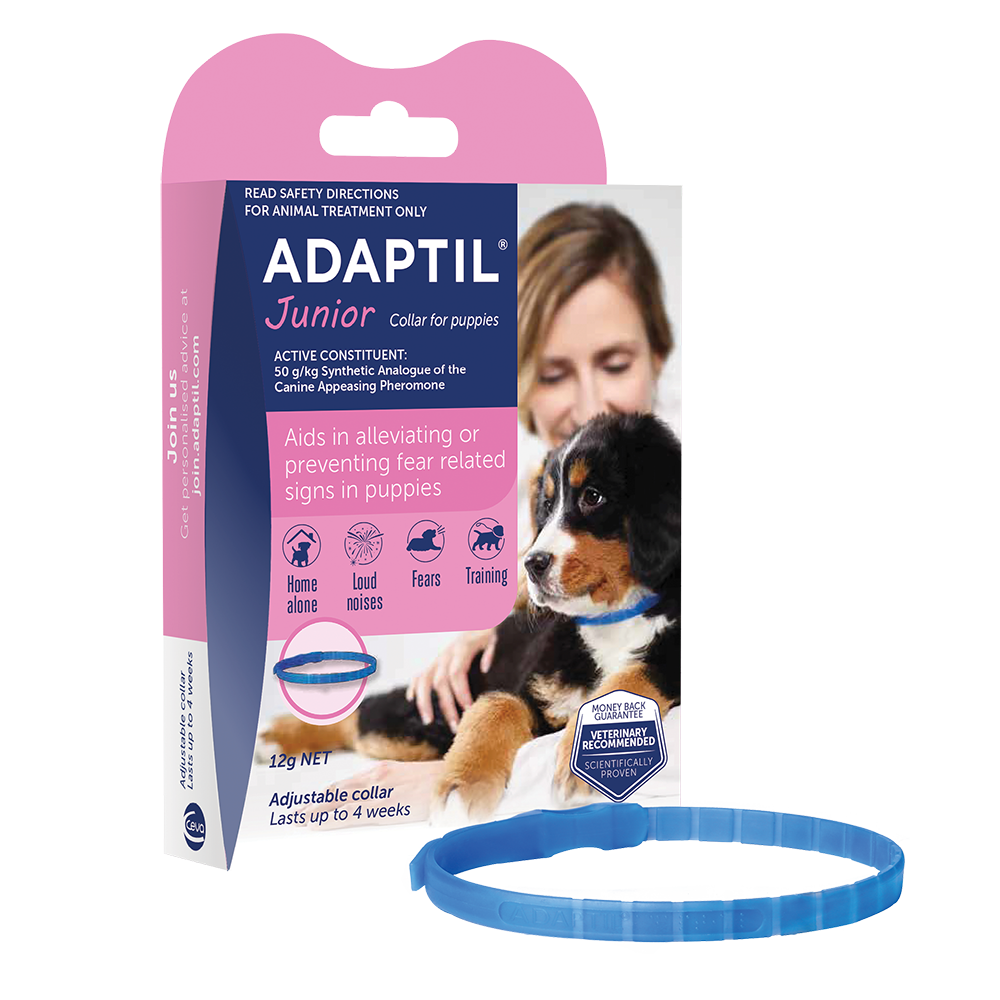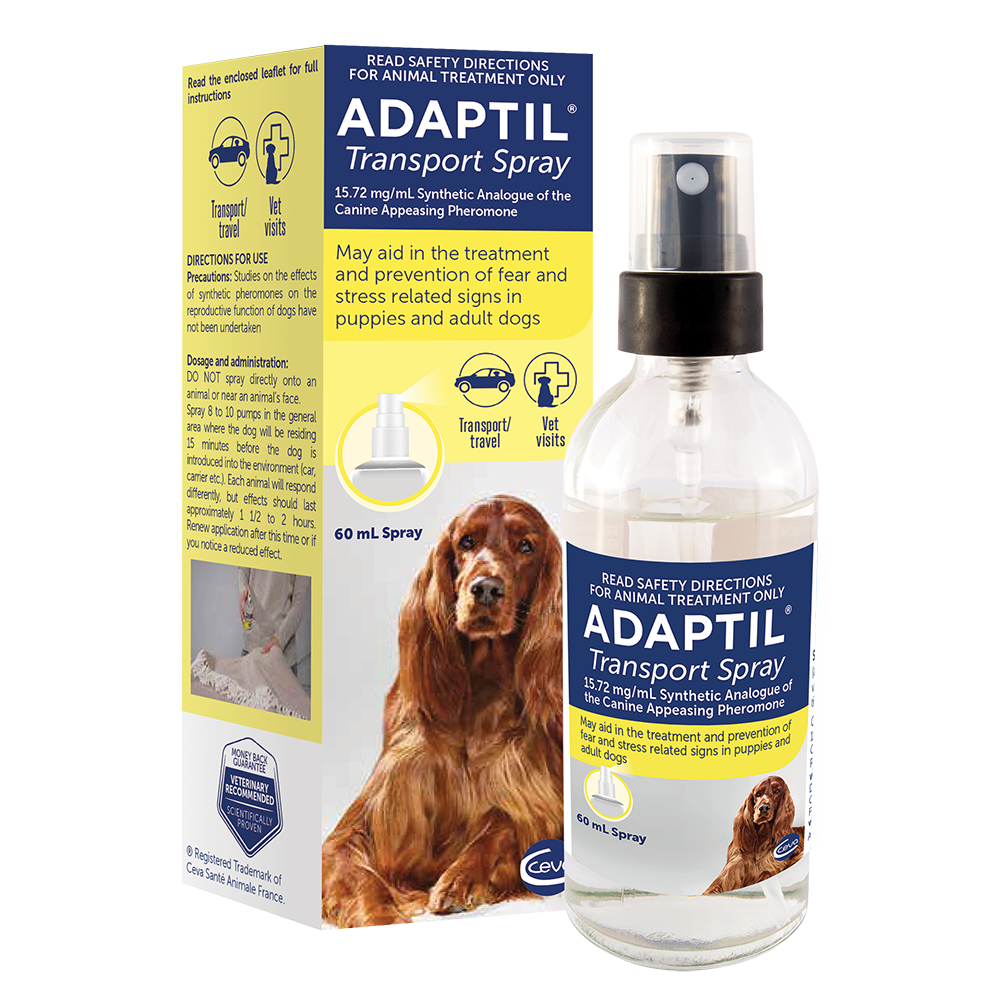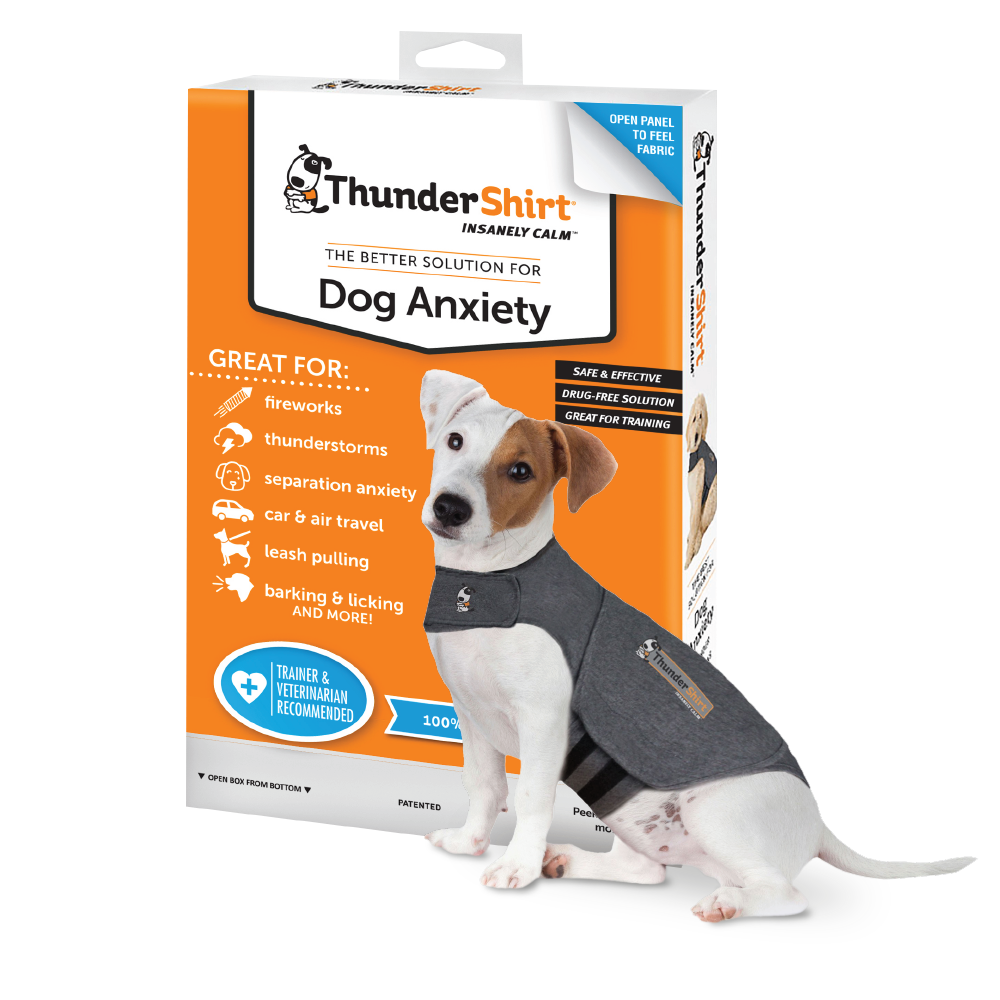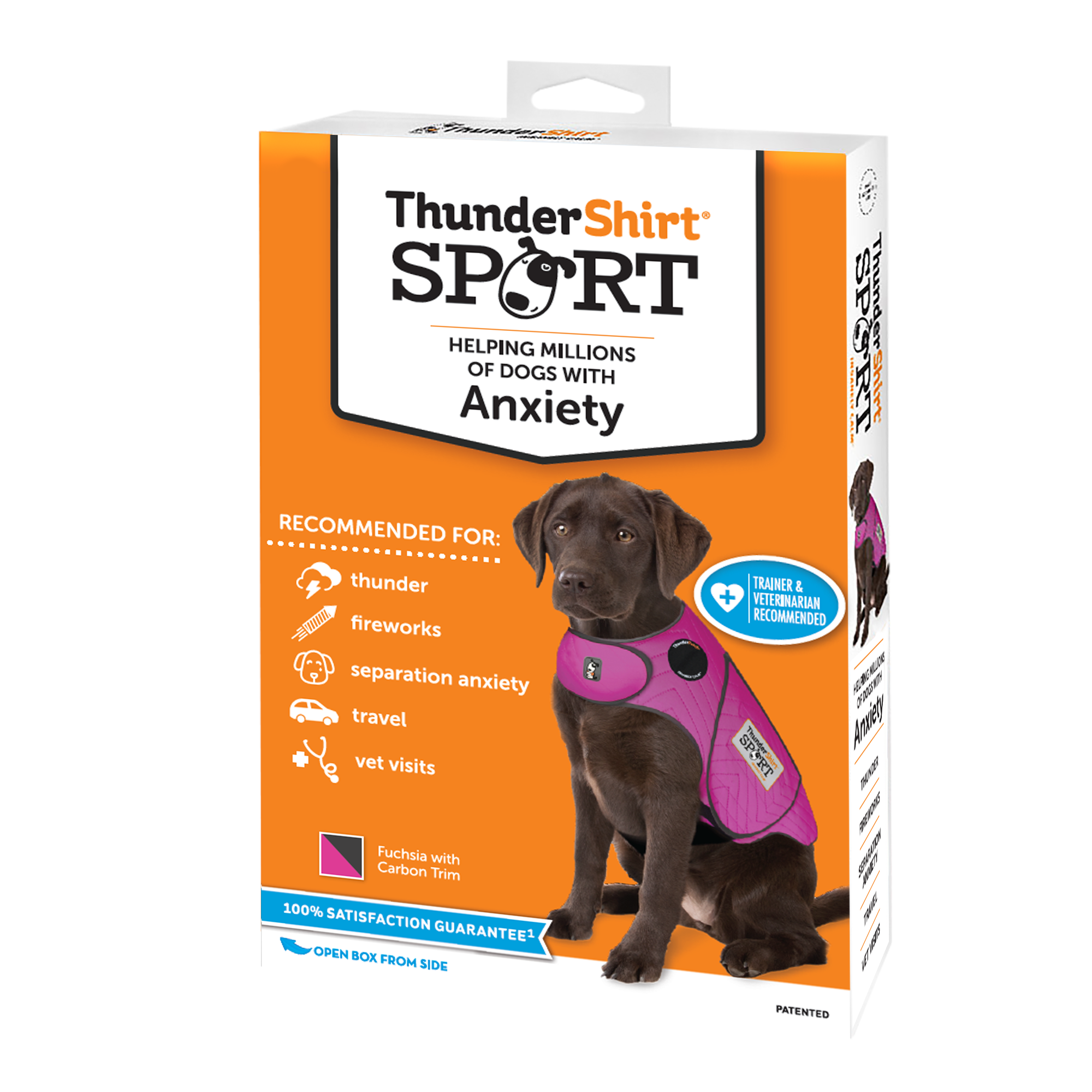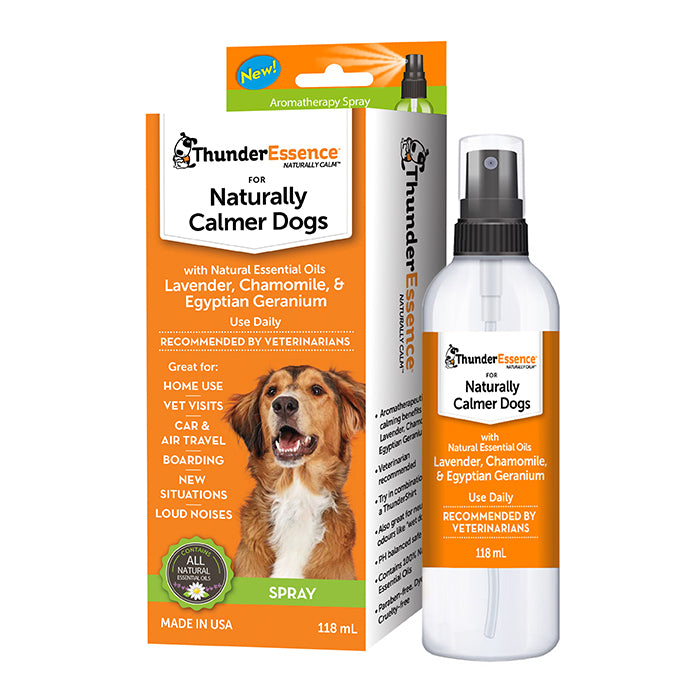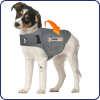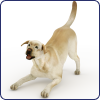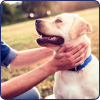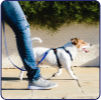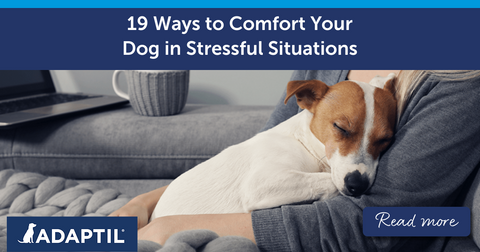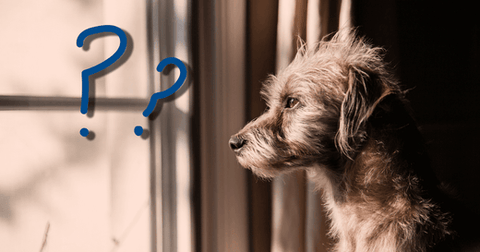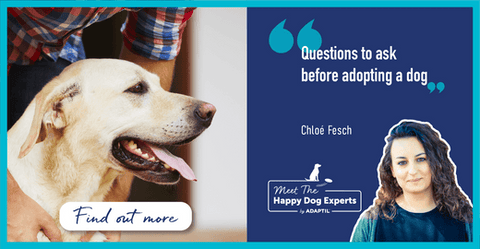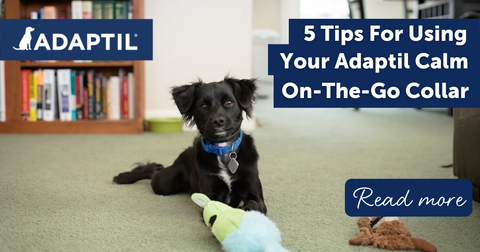For a lot of dogs, going for a walk is the highlight of their day, and they only need to see you pick up their lead, put your coat on and they will start to get excited at the prospect. But this is not the case for all dogs for some, venturing outside of their home environment is scary and uncomfortable.
Dogs have very sensitive hearing; their ancestors relied on their hearing abilities to detect the sounds of their prey crawling through the undergrowth and our domesticated dogs still have the same amazing ability. In fact, a dog's hearing is about four times as sensitive as a human's that's why they know if someone is approaching your house, long before they walk up the path!
It's important that your dog has a regular walk; not only is it essential for their physical health, it's also good for developing their socialisation skills, their mental health, supporting their training and, of course, it will strengthen the bond between you.
So, how can you help your pooch when noises on walks scare them?
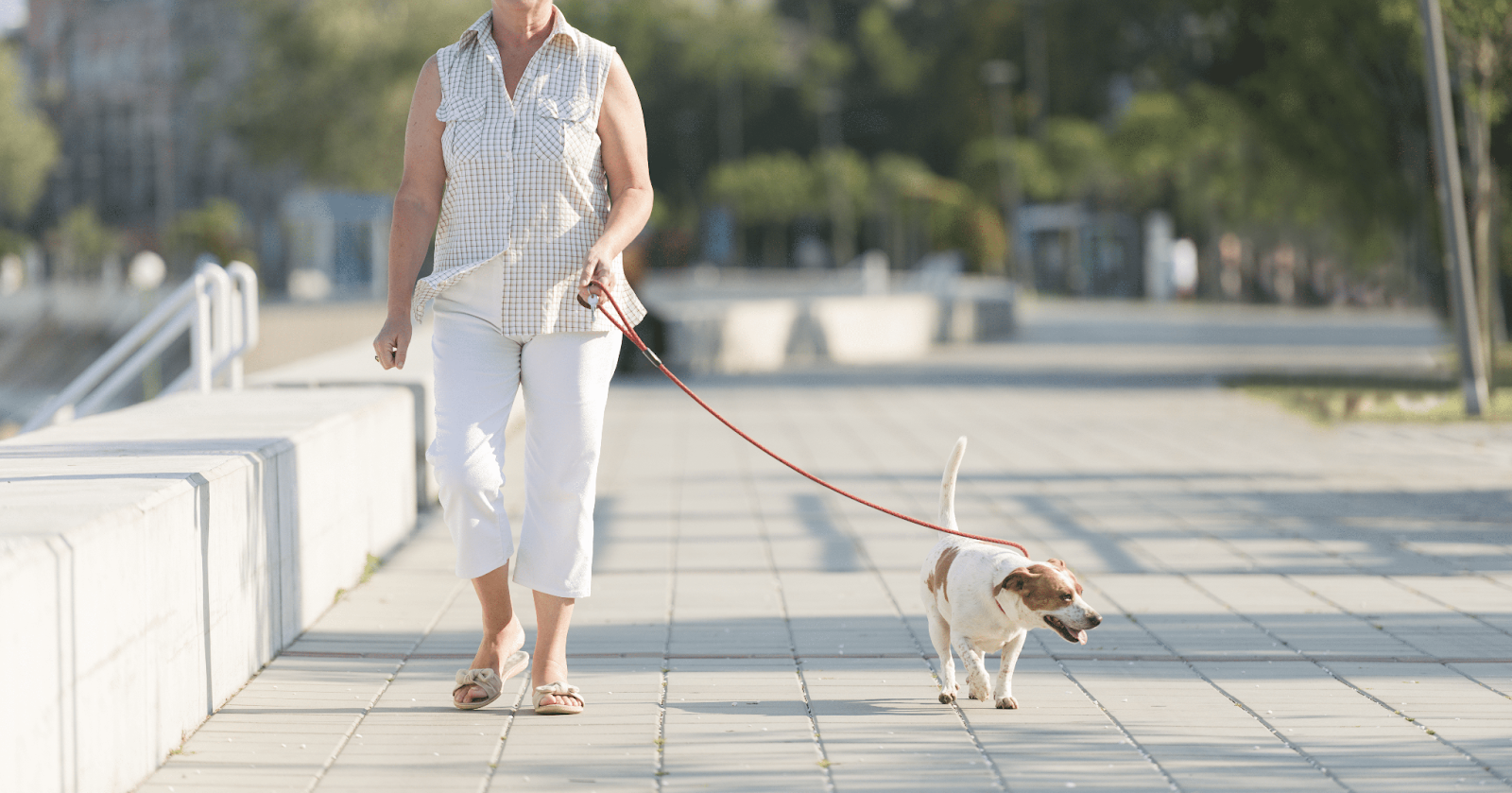
Signs that your dog is scared of noise
- Does your dog shake or tremble when you are out walking?
- Do you find them pacing around the house for no particular reason?
- Do they pant or drool, even when they have not been exercising?
- Do they have their tail tucked between their legs when they are out of their home environment?
- Are they wide eyed with their ears pushed back?
- Do they cling to you when you are out and perhaps cower down or hide?
- Are they being unusually vocal whining, barking?
- Do they try to avoid particular parts of your walk, or certain areas?
These actions could signal that your dog is hearing something that is bothering them, perhaps out of your hearing range, and it is making them scared and nervous.
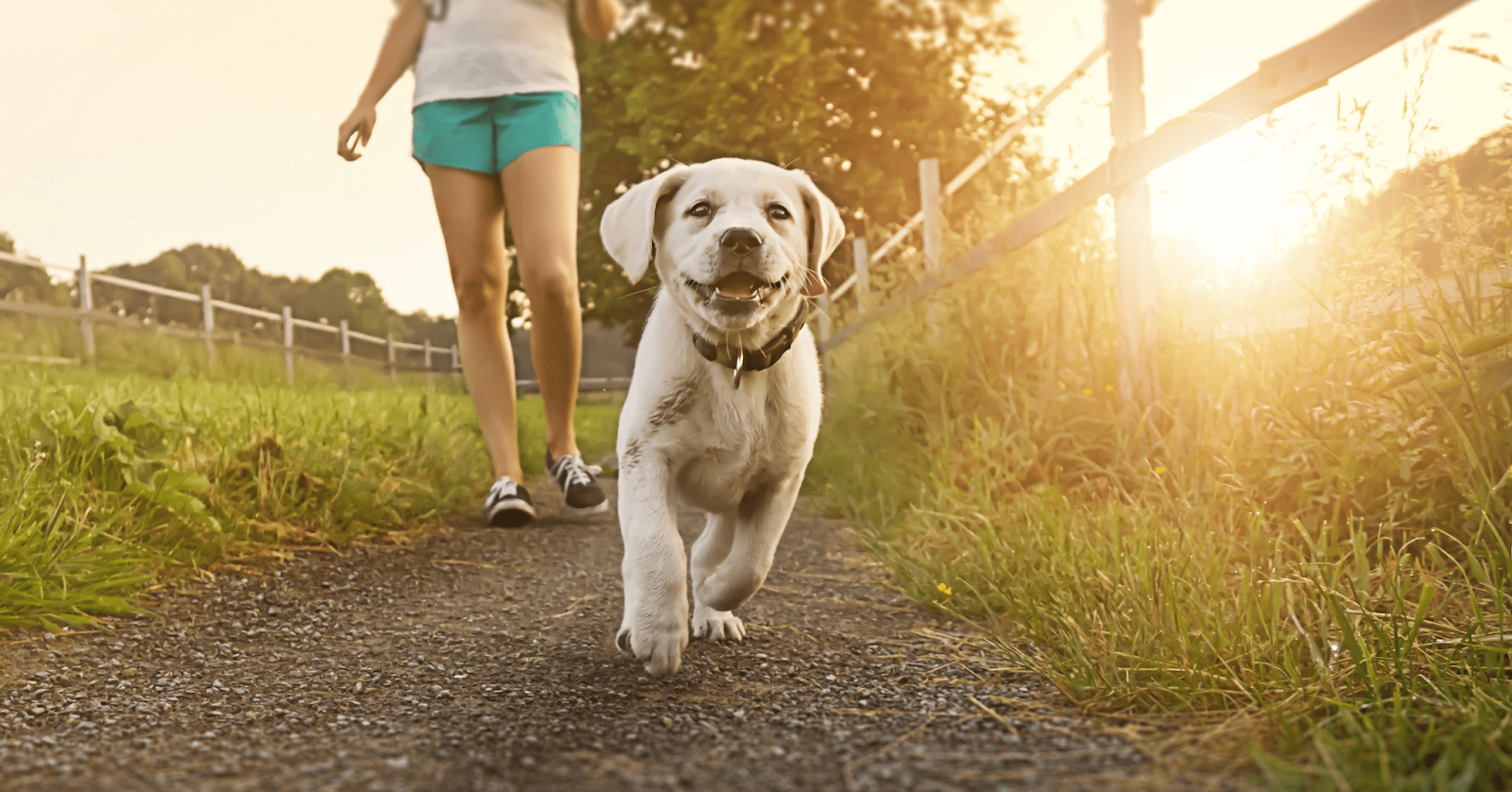
Spot the noise source and find a resolution
Try to understand what is frightening your dog so that you can work out how to help and support them.
- Do they cling to your side and cower when a car or lorry passes by on a busy road? If you cannot change to a less busy route, try and walk at a less busy time of day for example, don't go out for a walk during peak commuting times or when kids are going to school. Alternatively, drive them to a park away from a busy road.
- Do they get anxious during firework displays? It is not uncommon for animals to get spooked by the noises that fireworks make. The loud bangs and hisses, along with flashing lights, can be very scary. When you know that fireworks are scheduled, you have the opportunity to prepare in advance to alleviate your dog's stress. Do this by making sure they have a safe place to retreat to; stay with them so that you can comfort them if required; try distracting them with a favourite toy; and close all doors and curtains to muffle sounds as much as you can.
- Do they get spooked by a thunderstorm? Be aware of local weather forecasts and plan to take your dog out before the storm is scheduled. But remember, their hearing is much more acute than yours, and they may hear a clap of thunder from many miles away and this could make them bolt in fear. If a storm is forecast, keep them near you and on a lead at all times so that you are able to reassure them if they show signs of being scared, and are able to get them somewhere they feel safe.
- Do they run away from large gatherings? When people get together, their chatting and laughter can get quite loud, particularly if there's music in the background, too. Your pooch may find that this combined noise makes them feel uneasy; if you are planning a party or gathering, make sure your dog has a safe place to retreat to in a separate room/area that can be 'sound proofed' if possible, with closed doors and curtains. You may even play them some soothing music to mask the noise of the human revelry.
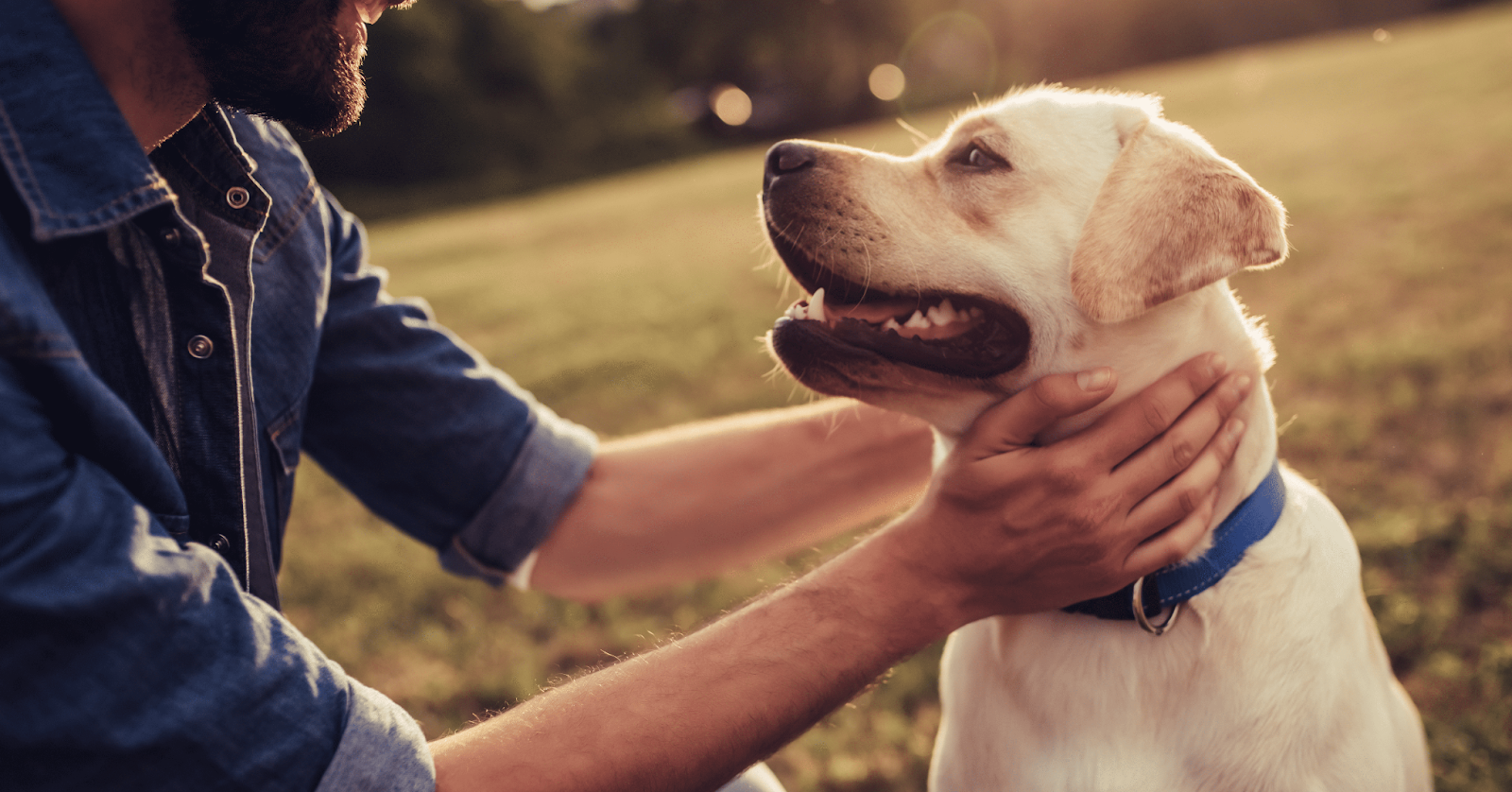
- Don't punish them if they are frightened of a noise this does not help them and confuses/frightens them more.
- ADAPTIL Calm Home Diffuser is an excellent solution to help your dog stay calm and adapt at home, in situations like staying home alone, loud noises, or visitors.
- If you want extra assistance when you are out walking, try ADAPTIL Calm-on-the-go Collar, which releases appeasing pheromone messages to support and reassure your dog as they face challenging situations wherever they are.
- ThunderShirt is a jacket for dogs that applies gentle, constant pressure to help reduce stress-related problems such as barking, loud noises, separation, travel, vet visits and training. ThunderShirt's patented design applies gentle, constant pressure to calm your dog immediately. Thundershirt and ADAPTIL Transport Spray can be used together, to maximise the calming, comforting effect for your dog.
Ways to help your dog accept noise
There's daily noise all around us some of it can be anticipated and some comes when we least expect it; humans will normally recover quite quickly from an unexpected loud noise, but it's not necessarily the same for our dogs.
Ways that we can help our dogs accept noise are:
- Start to acclimatise them from an early age, introducing different levels and types of sound gradually.
- Establish a routine so that your dog becomes accustomed to routine noise
- If a noise startles you, try and stay calm so that your dog doesn't pick up on your anxiety.
- Don't force your dog to interact with a noise, but instead, gradually get them used to everyday sounds. You can do this by opening a window, or playing recordings of different sounds.
- Include some noise in your training sessions, like clapping your hands or using a whistle.
- If your dog is nervous of cars, introduce them to parked cars slowly, allowing them to sniff around it. If they seem relaxed, the next step could be starting the engine so that they become used to the sound; this could be followed by a short walk alongside a road until it becomes a normal sound.
- Always reward your dog for a calm reaction in training or when noises happen in your day to day life. This can be a treat or praise whatever works for your dog.
- Take a look at our Calming Music for Dogs Playlist on YouTube for 15 hours of relaxing sounds.
If your dog continues to show signs of stress when encountering noisy situations, it's advisable to get them checked out by your vet to make sure there are no underlying medical issues. You could then also enlist the help of a certified behaviourist who will work with you to understand how you can help your dog learn to cope with noises.
